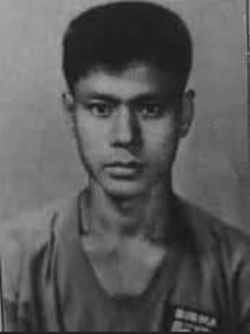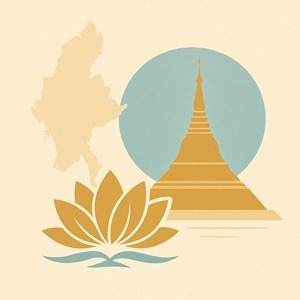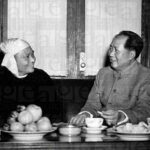
Suk Bahadur: The Golden Captain of Myanmar Football
Suk Bahadur, often remembered as the “Golden Captain,” is widely regarded as the most iconic footballer in Myanmar’s sporting history. Born in the Gurkha community of Myanmar, he rose to prominence during the nation’s golden era of football from the 1950s to the 1970s, when Burma (as the country was then known) dominated Asian football and earned international respect. His story is not just one of sporting excellence, but also of national pride, discipline, and leadership.
Early Career and Rise to the National Team
Suk Bahadur’s football journey began in local clubs and regional matches, where his athleticism, stamina, and sharp technical ability quickly caught attention. He was known for his tireless running, calm decision-making, and ability to inspire his teammates. By the early 1950s, he had earned a place on the Burma national team, beginning a career that would span more than two decades.
Achievements on the International Stage
Under Suk Bahadur’s leadership, the Burma national football team achieved extraordinary success. He captained the squad during what is now considered the golden age of Burmese football, with achievements that still inspire fans today:
Asian Games Glory: Suk Bahadur led Burma to two consecutive gold medals at the Asian Games, in 1966 (Bangkok) and 1970 (Bangkok). These victories placed Burma among the top footballing nations in Asia at the time.
Southeast Asian Peninsular Games (SEAP Games): The team also captured multiple gold medals in regional tournaments throughout the 1960s and 70s, further cementing their dominance in Southeast Asia.
Olympic Participation: Suk Bahadur represented Burma at the 1964 Tokyo Olympics, giving the team global exposure and showcasing Myanmar’s talent on an international platform.
Merdeka Tournament Success: Burma’s performances in Malaysia’s prestigious Merdeka Cup under Suk Bahadur’s captaincy drew praise across the region, as the team consistently finished as winners or top contenders.
His career spanned a period when Myanmar’s football team was feared and respected across Asia, often defeating strong teams from Japan, South Korea, Thailand, and Malaysia.
Leadership and Legacy
What set Suk Bahadur apart was not just his talent but his leadership. As captain, he demanded discipline and teamwork, becoming a role model for both teammates and fans. His background as a Gurkha in Myanmar also made him a unifying figure, symbolizing the diversity of the country.
He was often praised for his sportsmanship and humility. Unlike many captains who sought personal glory, Suk Bahadur emphasized the importance of the team and the nation. His approach helped create a football culture in Myanmar that valued discipline, respect, and collective success.
Later Life and Recognition
Even after his retirement, Suk Bahadur’s name continued to be spoken with reverence. For many older fans, he represents the high point of Myanmar football, a time when the country was at the top of Asia’s sporting scene. He remained involved in football circles, contributing to the development of younger players and sharing his experiences with future generations.
Myanmar has yet to return to the same heights it reached under his captaincy, but Suk Bahadur’s story continues to inspire hope that the country can one day reclaim its former glory. He is often mentioned in historical accounts of Asian football as one of the most successful captains in the region.
Enduring Inspiration
Today, Suk Bahadur is remembered not only for his medals and victories but also for what he represented — a combination of skill, determination, and national pride. He embodied the spirit of Myanmar during a period when the country was making its mark on the global stage. For football fans and sports historians alike, his legacy is a reminder of what is possible when talent meets leadership and when sport becomes a source of unity for a nation.
⚽ Suk Bahadur – Quick Facts
Full Name: Suk Bahadur
Ethnicity: Gurkha community in Myanmar
Position: Forward / Captain
National Team Career: 1950s–1970s
Captaincy: Led Burma (Myanmar) during the golden era of football
🏆 Major Achievements
Asian Games:
🥇 Gold Medal – 1966 (Bangkok)
🥇 Gold Medal – 1970 (Bangkok)
Olympics:
Represented Burma at the 1964 Tokyo Olympics
SEAP Games (Southeast Asian Peninsular Games):
Multiple Gold Medals during the 1960s–70s
Merdeka Cup (Malaysia):
Regular finalist and champion with Burma national team
🌟 Legacy
Remembered as Myanmar’s most successful football captain
Known for discipline, sportsmanship, and national pride
A symbol of the golden era of Burmese football
👉 According to Wikipedia, Suk Bahadur is celebrated as Myanmar’s greatest football captain, remembered for leading the national team during its golden era in the 1960s and 70s.





